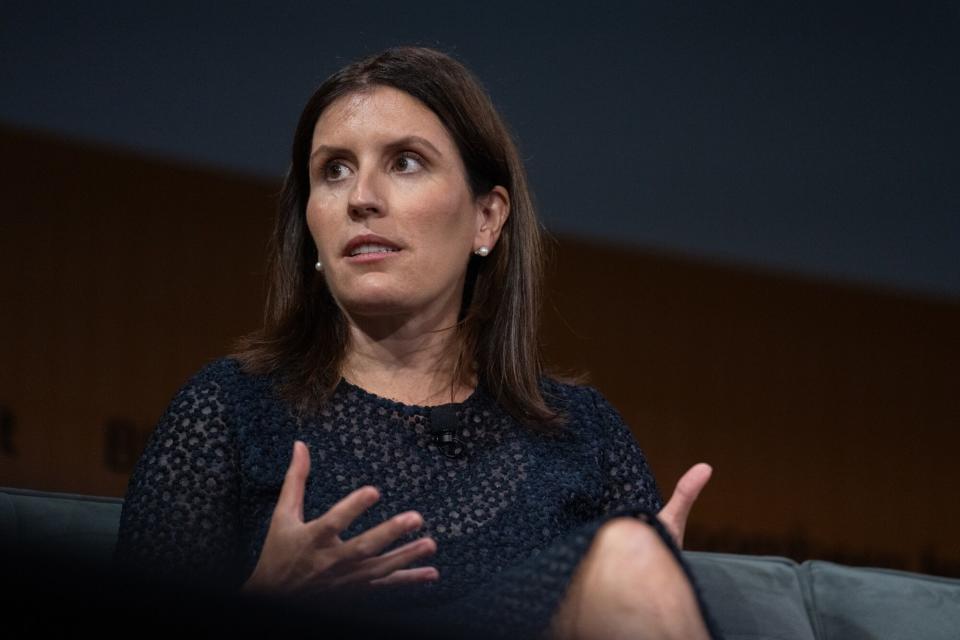TCW’s Koch Sees Rising Defaults But No Bubble in Private Credit

(Bloomberg) -- TCW Group Inc. Chief Executive Officer Katie Koch said she expects higher defaults in the $1.7 trillion private credit market, but that she doesn’t see a bubble as investors are still willing to trade liquidity for yield.
Most Read from Bloomberg
YouTuber Dr Disrespect Was Allegedly Kicked Off Twitch for Messaging Minor
Nvidia Rout Takes Breather as Traders Scour Charts for Support
Rivian Gets $5 Billion Lifeline in Joint Venture With Volkswagen
Julian Assange Leaves Court ‘Free Man,’ Ending 14-Year Drama
“We know there’s going to be demand for private credit, because there’s demand for people to pick up some spread for sacrificing liquidity,” Koch said Tuesday at the Bloomberg Invest conference in New York.
Still, Koch expects defaults to rise in the next two years, primarily due to lax covenants and because people put capital structures in place with the expectation that interest rates would remain near zero. Now that rates have risen sharply since March 2022, she said, “math is taking over.”
Meanwhile, Oaktree Capital Management Co-CEO Robert O’Leary said that private credit is better underwritten than the syndicated loan market, which he called the “locus of the most egregious stuff that happened.”
“I’m not sure everybody is fully aware how bad it could get, with some of the documents that have been put in place,” he said, referring to terms in loan agreements.
O’Leary added that he expects to see a “tremendous level of liability management” over the next 18 months amid a combination of “bad documents” and aggressive fund managers.
“You’re getting to the point of no return, especially for a couple of these floating rate structures, where they’re bridging themselves by issuing more debt,” he said. “And at some point, even if rates go down, they’re not going to be able to to be recovered.”
To access the full live blog, click here to read on the Terminal and here online.
Most Read from Bloomberg Businessweek
How Jeff Yass Became One of the Most Influential Billionaires in the 2024 Election
Why BYD’s Wang Chuanfu Could Be China’s Version of Henry Ford
Independence Without Accountability: The Fed’s Great Inflation Fail
©2024 Bloomberg L.P.

 Yahoo Finance
Yahoo Finance 